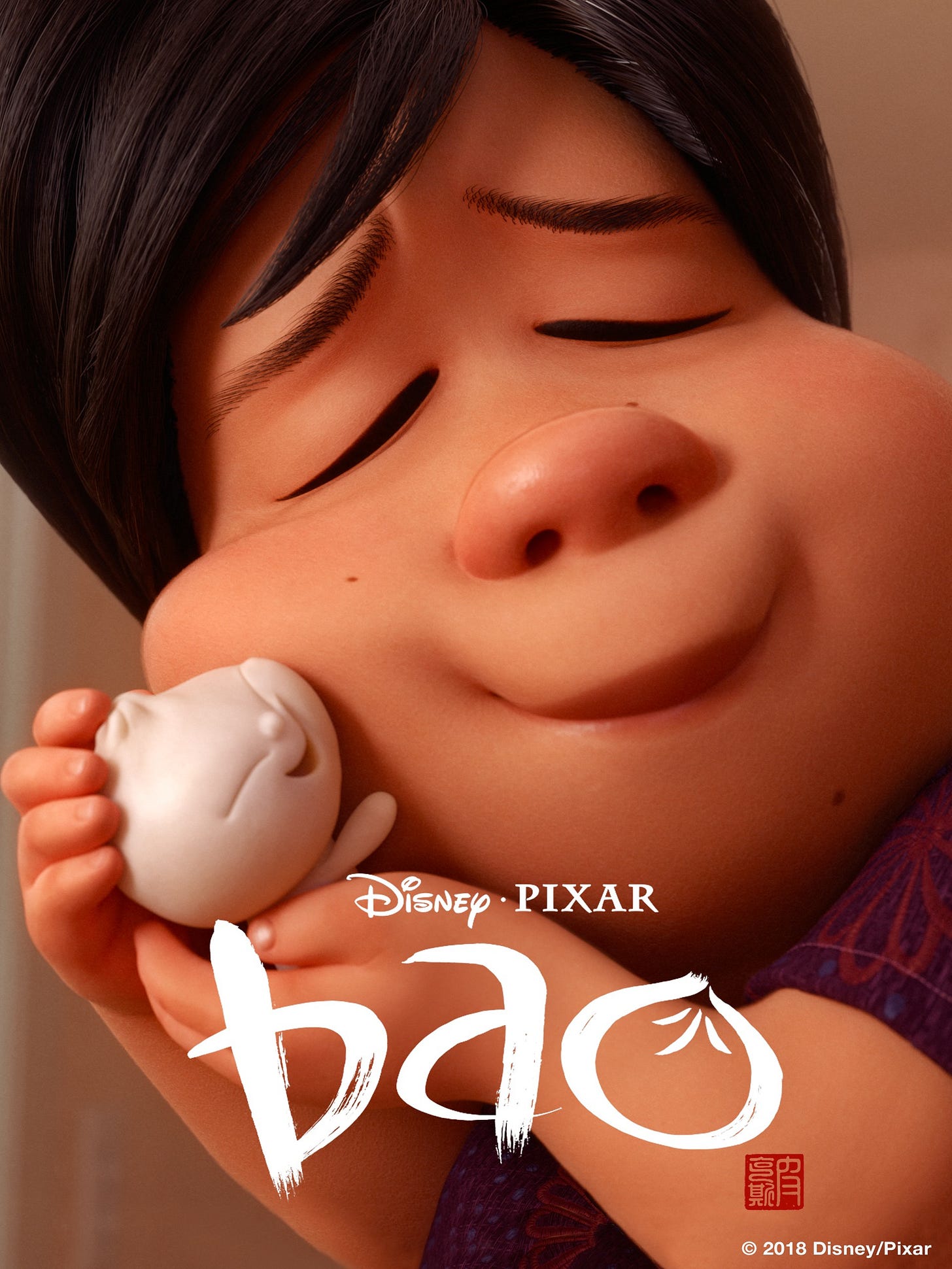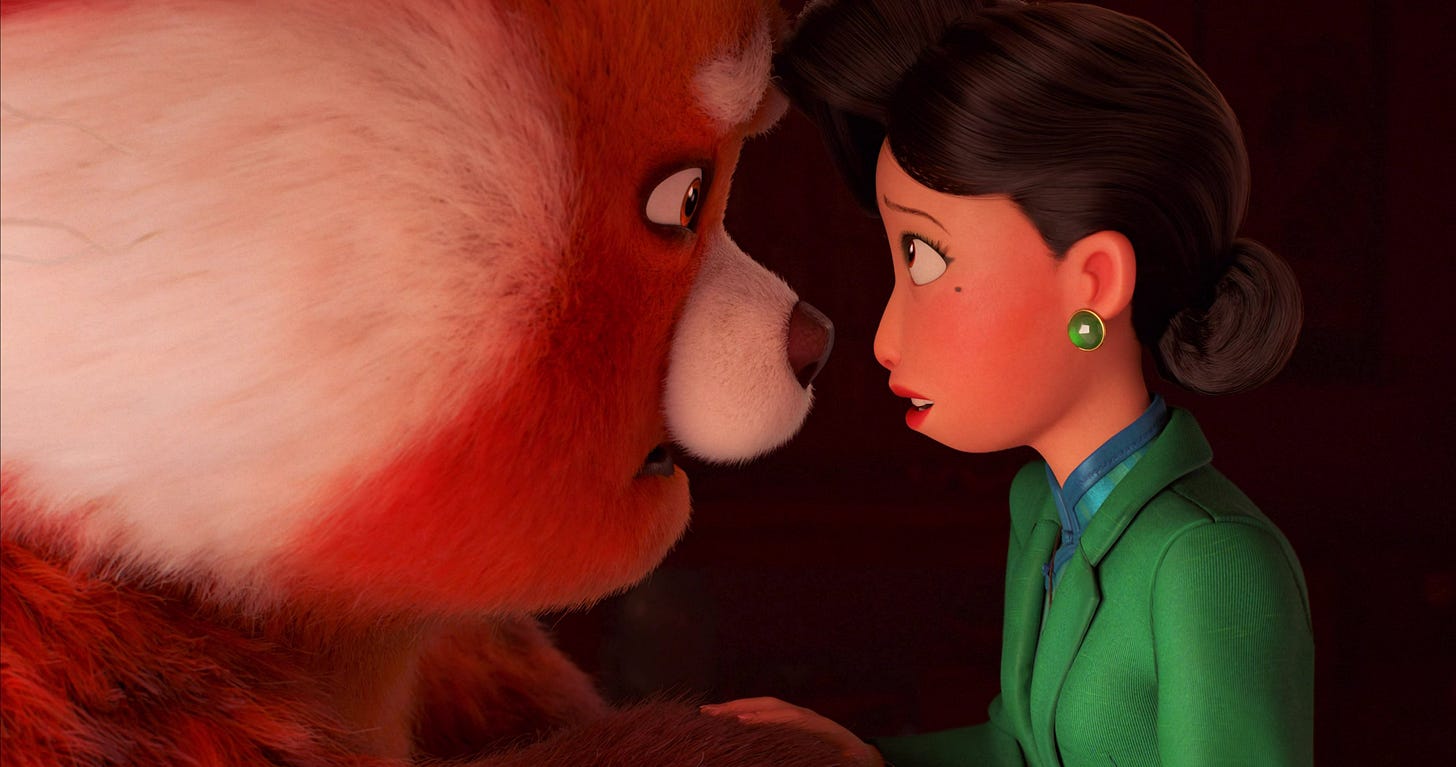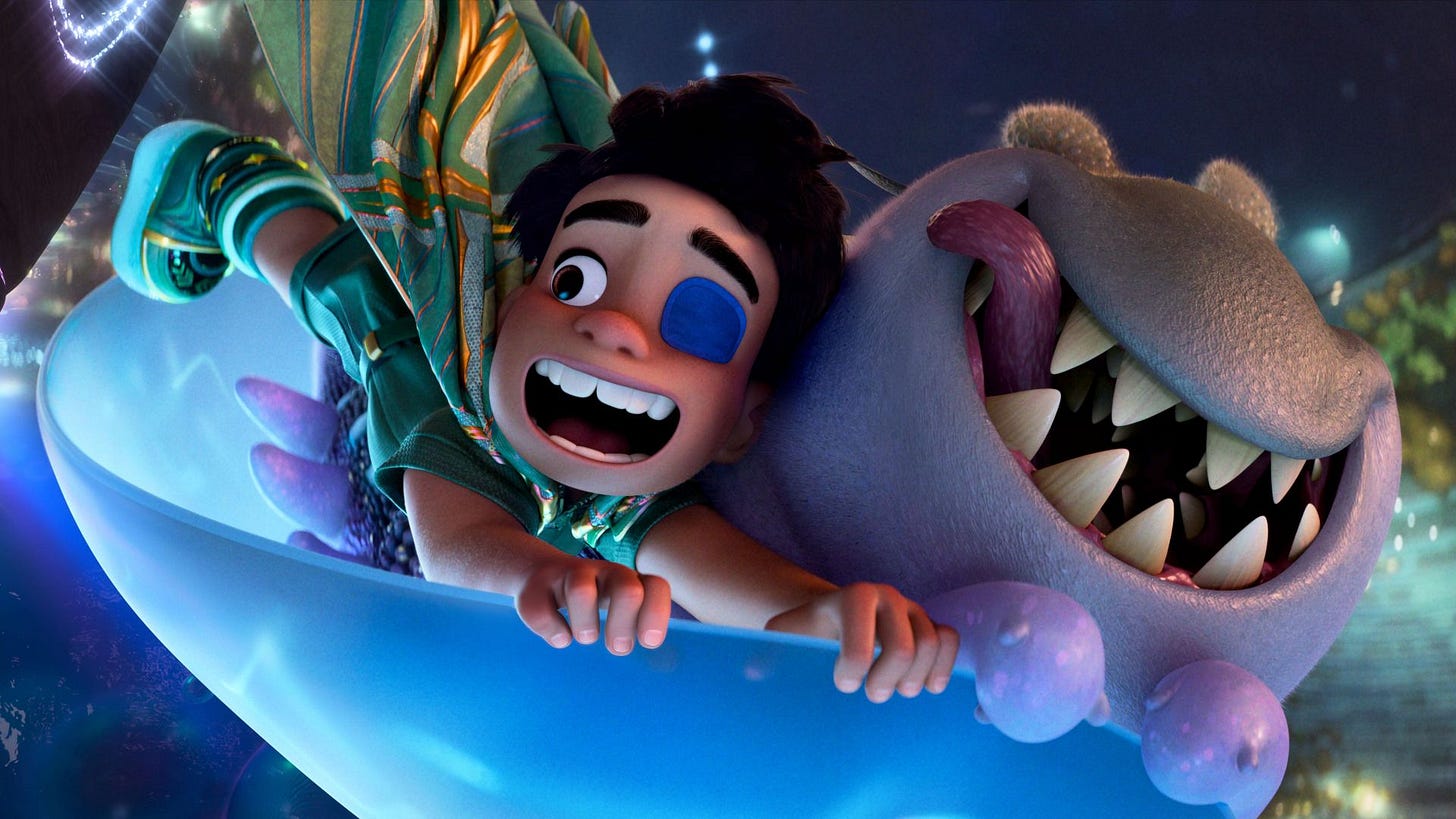Renegades | Domee Shi on Finding Your People, Even If They’re Light-Years Away
The Academy Award winner takes us to space and reminds us what true friendship can look like
Welcome to Renegades, Gold House’s editorial series spotlighting Asian Pacific leaders and creatives who are carving their own paths and defying stereotypes along the way. This week’s Renegade is animator and director Domee Shi!
Domee rose to prominence after winning an Oscar for her Pixar short Bao, and became the first woman to solo-direct a feature film at Pixar with Turning Red (2022), which earned both critical acclaim and an Academy Award nomination. Her next project, Pixar’s upcoming sci‑fi adventure Elio, marks her second feature as director and follows a space fanatic with an active imagination who finds himself on a cosmic misadventure where he must form new bonds with alien lifeforms. Click here to get your tickets to see Elio in theaters starting June 20th!
What did you want to be when you were growing up, and how does that compare to where you are now?
I wanted to draw for a living. I wanted to do whatever it took to be able to support myself doing what I loved, which was drawing and sharing those stories with other people. I feel very lucky and fortunate that I am able to do that now as my full-time job, being an animation director.
Reflecting on your early days as a storyboard artist on original films like The Good Dinosaur and Inside Out, what pivotal lessons did you learn that still influence your storytelling today? Were there any mentors or pieces of advice that helped shape your work at the time?
I learned so much working on Inside Out with directors Pete Docter and Ronnie del Carmen. I was inspired by how Pete directed from his gut — he always had this North Star theme and emotion that he wanted to hit when he was making Inside Out, and that helped guide him through so many different iterations of the story. I kind of adopted that method for when I directed my own stories.
For Bao, my North Star was always the moment where the mom eats her dumpling son and collapses in remorse, and we find out it's all this fever dream metaphor for her relationship with her real human son. For Turning Red, that North Star for me was the healing of this relationship between Ming and Mei, and drawing from my own relationship with my mom thinking about what I want to say to her and what I want her to say to me. Turning Red changed a lot from when I initially pitched it — there were way more characters, plot points, a whole 4TOWN musical thing — but that core relationship was always our North Star.
I took so much from each director I worked with. From Pete Docter, I was really inspired by how he was not precious with any aspects of filmmaking. From Brad Bird, I was inspired by how decisive he is – he has such a clear vision of what he wants to say with his movies and gets his crew to rally behind that singular vision. Pete Sohn’s work ethic, draftsmanship, and passion was amazing to watch on The Good Dinosaur, and he wasn't afraid to get in the mud with you storyboarding even though he's a director.
From all of these amazing directors, I learned that you have to believe in your story and you have to convince others to believe in it too. Animation is a marathon, and you have to keep your passion, confidence, and energy going for the four-plus years that it's going to take to get this movie on the big screen.
With Bao, you made history as the first woman to direct a Pixar short — and went on to win an Oscar for it. Why do you think short films are such a vital stepping stone for emerging filmmakers?
Bao was Directing 101 and a really great training ground for me. All the steps it takes to direct a feature film are in a short film, just more condensed. You have a smaller budget and team, but the creative process is similar. It gave me experience working in different aspects of the animation pipeline that I wasn't used to coming from the storyboarding department. I learned about working with animators, lighting, rendering effects, simulation. I ran reviews, had to keep the entire movie in my head, and worked very closely with an editor as we crafted the movie. Music was huge too, and that's stuff that you don't necessarily think about when you're storyboarding. Short films are such a great way to learn what it takes to direct a feature film, and it's relatively low stakes so you can play, learn, and grow in a lower stakes environment.
Four years after Bao, you made history again with Turning Red being Pixar’s first original feature film with an Asian lead character. What did it mean to you for your debut feature to mark such a significant milestone for cultural representation in mainstream animation?
I felt very lucky that I was able to pitch and work on a movie that had all of these elements I naturally wanted to talk about. I loved anime and coming-of-age stories and really wanted to tell a story about a mother and daughter. The cultural representation milestone didn't hit me until after the movie was done and after we started sharing it with the world. Asian audience members started coming up to us and expressing their love for the movie and seeing themselves, their families, relationships, and struggles on the big screen. That's when it hit me.
When you're an artist or a filmmaker trying to get something made, you don't think about the global impact. You're just trying to tell stories that mean something to you and that are things you care about, and if you do it right, it hits on a more universal level. When you start an idea, you're kind of making it for yourself, so I'm really glad that Turning Red and Bao have been embraced by the world and by Asian audiences in such a huge way.
In your latest original film, Elio, the title character is an imaginative young boy who becomes Earth’s accidental ambassador to the universe. How did the sci-fi genre open up new ways to explore deeply human themes of identity, belonging, and the fear of fitting in?
I was really excited and nervous to step into this unknown territory. I've always loved sci-fi movies growing up and even now. I've always loved Steven Spielberg, John Carpenter, Ridley Scott, and Denis Villeneuve. I love how science fiction can be used as this allegory and way to talk about real life struggles and issues. I really identified with Elio and infused my own weird kid angst into the character too. I remember being the only kid at school that liked anime and dreaming for a day where I could go to a place like animation school or Pixar — where everybody could speak my language, accept all of my eccentricities, be eccentric themselves — to find my people. I think that's what drives Elio and all of us.
I also was excited about depicting aliens and alien abduction as this positive wish fulfillment fantasy. So often, I think science fiction movies and alien abduction and invasion stories are really scary and harrowing. What's so amazing about Elio is that he wants to be abducted and to meet these unknown beings. We depict aliens in this positive utopic light of this place called the Communiverse, where aliens from all walks of life, shapes, sizes, colors all live in harmony, cooperate, share knowledge, technology, and resources. It’s such a great opportunity to be able to tell a different kind of alien abduction story, and that means a lot to me being an immigrant in this country. This message of acceptance across galaxies and the universe can resonate with a lot of people in this world right now.
As Elio bonds with quirky aliens across the galaxy, he begins to uncover his first true sense of belonging and friendship. Given Pixar’s universal appeal across generations, how do you hope audiences of all ages will connect with this story?
I think we've all been there and we've all felt the same loneliness that Elio has felt of not fitting in and of wanting to find your people. Hopefully, our story inspires kids and adults to reach out and find connection with people around them that may not exactly look like them or talk like them. Deep down, you can find connection with just about anybody if you make the effort like Elio does with his first real best friend Gordon, the space worm with no eyes but a lot of heart.
Looking ahead, what excites you most about continuing your work in animation and filmmaking? Are there any dream projects or collaborators you hope to work with?
I’m excited to continue telling stories with one of the greatest visual mediums ever. Computer animation has mastered realism, and you're seeing a lot of new exploration in style and visual looks for a lot of upcoming animated movies, so I'm really excited to see where that goes.
I'll always be drawn to the personal experiences and emotions that we've all collectively gone through, remember, and have felt deeply. At Pixar, every project is a dream project and everybody here is a dream collaborator. It's kind of cheesy to say, but I'm just really excited to be going back into development and trying to come up with something new.
Lightning Round
Favorite Book: Harry Potter series. I'm a total cliche millennial, but those books have formed a lot of my childhood and adulthood.
Morning Routine: I wake up, pet both of my cats vigorously, have a quick breakfast, coffee, and I listen to True Crime podcasts as I do my makeup and skincare in the morning.
Dream Vacation Destination: To be on theme with the movie, I'd love to visit the Communiverse and fantastical space that we built for Elio. I just want to go there, live there, talk with the aliens, ask them questions, and just hang out.
Comfort Movie: The Sound of Music. I watch that almost every year with my mom during Christmas when I visit Canada. I know all the songs by heart and identify a lot with Maria.
Rising Asian Pacific Name to Watch: Atsuko Okatsuka. We worked with her on Elio for a really fun cameo. Her standup specials are so great, so unique, so quirky and she's just one of a kind and such a lovely person.






